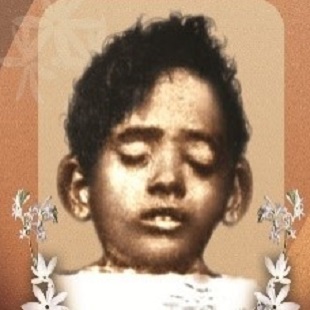
Baji Rout who was martyred on 12 October 1938 at the age of 12 only while peacefully resisting the British troop to cross the river in his village by denying them the ferryboat, is the youngest in the history of freedom struggle in India to gain martyrdom. He was born on 5 October 1926 as the youngest son of Hari Rout and Rania Devi in the village Nilakanthapur in the then state of Dhenkanal. He lost his father in his childhood. Her mother who was earning a living by grinding and husking paddy at a quern in the neighborhood was unable to spend anything on his education. He had two elder brothers who also earned very little to support the family. The late thirties of 1900 witnessed an intensification of the Prajamandal Movement in most of the princely states in Odisha which was well supported and sympathized by Congress. After the formation of the Congress government in Odisha in 1937, they extended full support and encouragement to the movement. Dhenkanal was one of the states which drew the maximum attention of the Congress workers because of the inhuman repression of king Shankar PratapSinghdeo to the agitators. But the people instead of being bogged down came more and more to the street to protest against numerous taxes imposed by the king. More than fifty thousand people gathered in DhenkanalGarh and surrounded the royal palace on 12 September 1938. But the Praja Mandal leaders advised the people to organize the movement in a disciplined manner and convinced them to return to their homes. But the king on the other hand collected 200 armed forces from the neighboring states who were sympathetic to him. Besides, on 20 September, a contingent of 200 European troops also arrived at Dhenkanal to suppress the movement.
The Prajamandal committee of Dhenkanal formed a group called ‘Banara Sena’ to carry out and implement various decisions and orders of the committee. Baji’s two brothers along with the entire village were members of this organization. As a child, Baji was also the witness to many atrocities of the police and government officials in his village and felt the economic exploitation of the king. It is said that once his mother refused him salt in his lunch because of the high taxation imposed on it. On his subconscious level, Baji, therefore, developed hatred and anger for the king in his childhood.
Meanwhile, the troops unleashed a reign of terror in various villages in Dhenkanal. More than sixty villages were raided by the armed police who brutally beat and killed villagers, raged their houses to the ground, looted their properties, raped the women, and forced the people to sign a declaration of loyalty to the king at gunpoint. Village Bhuban was the epic center of the Prajamandal movement where on 10 October a troop led by magistrate Binay Ghosh arrested a few protesters and shot two villagers dead. Then on their way to Dhenkanal with the arrested villagers at midnight on 11 October, they tried to cross over river Brahmani in Nilakanthapur village where the village’s Banarsena group receiving the news in advance by the Prajamandal leaders rushed to the over-flown river to stop them ferry service by detaining the village boat. Therefore at the dawn of 12 October 1938, a scuffle arose between the police and the villagers as the police tried to snatch the boat from them. Nearly a dozen of villagers including Baji and his brother held back the boat to deny the police to ferry the river. The police thereafter opened fire at them in which six persons including Baji were killed besides injuring a few others. The dead bodies of all those six killed instead of being handed over to the police for post-mortem were held back by the Prajamandal leaders and taken to Cuttack in a procession where they were kept for the glimpse of the public. A mass procession accompanied these six bodies to the crematorium which created a wave of anger among the people. The killing of Baji became a sensation in Odisha and he became a legend.